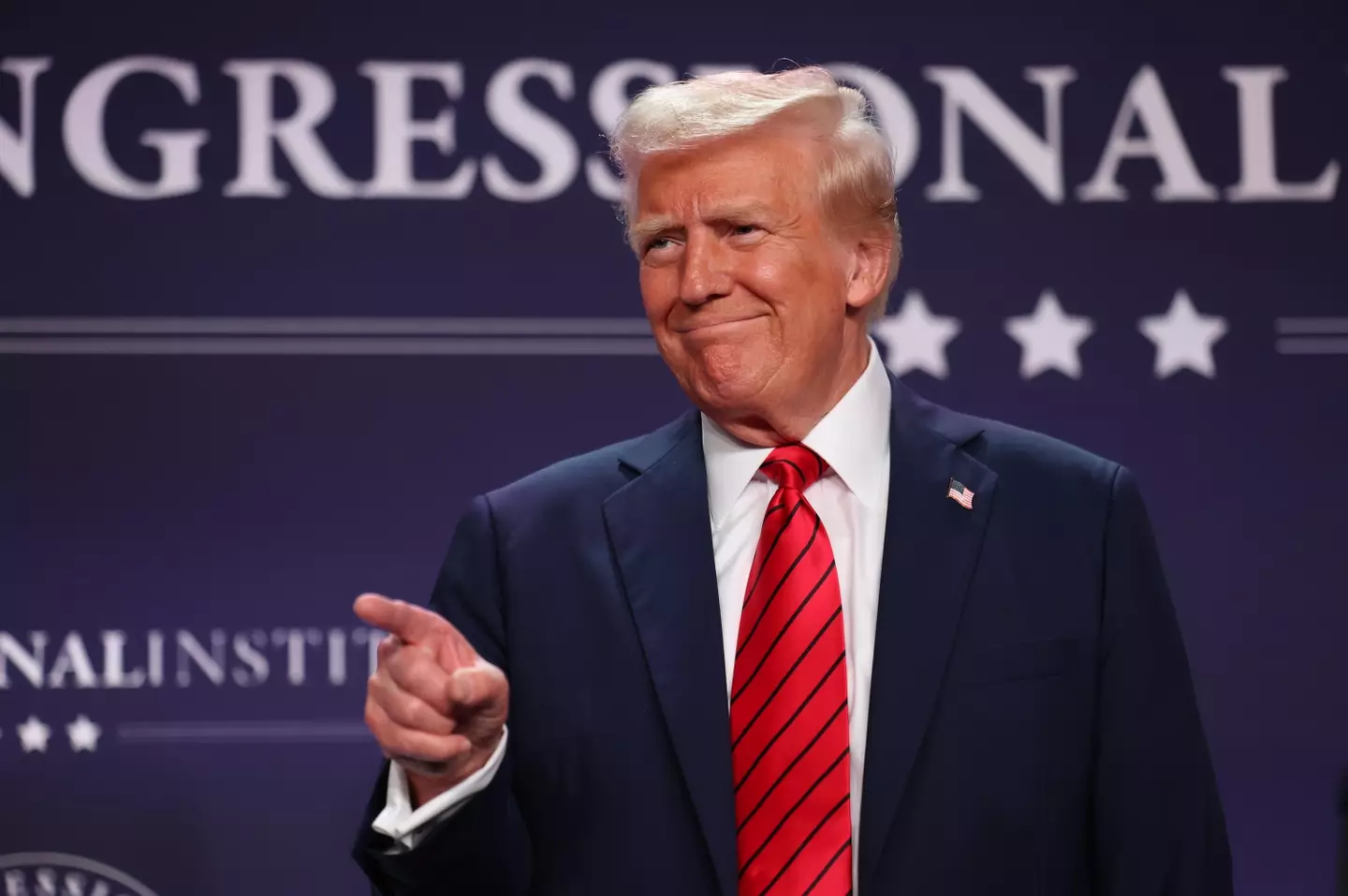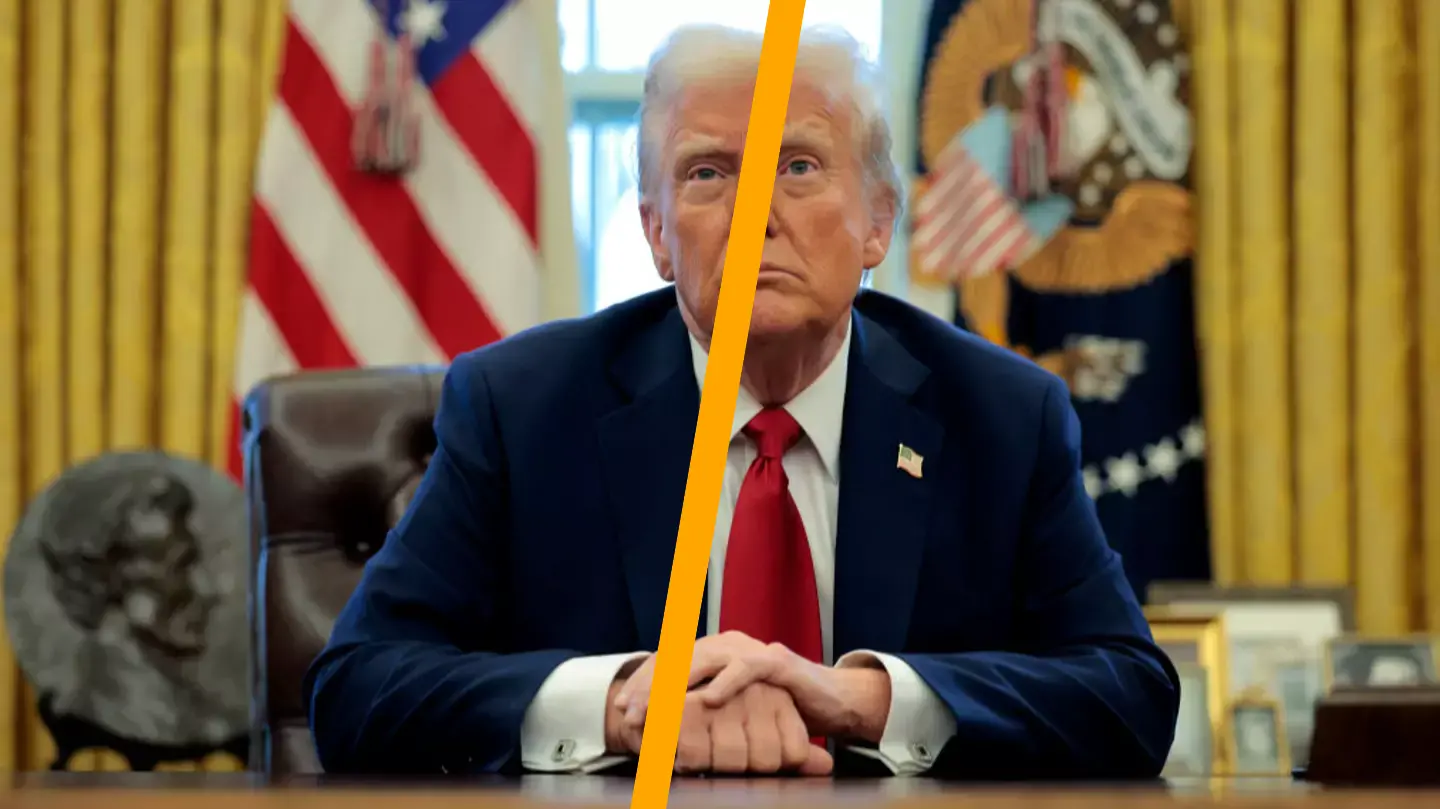Donald Trump has reaffirmed his position following criticism over the recently enacted tariffs on imports from Mexico, Canada, and China.
In the two weeks since President Trump returned to the White House for his second term, he has been notably active.
Setting a new benchmark, the 47th President of the United States signed more executive orders on his first day than any of his predecessors, including adjustments to passports and immigration policies.
The Trump administration’s decision to implement increased tariffs on imports from China, Canada, and Mexico has sparked significant controversy.

Set to take effect on Tuesday (February 4), these tariffs are part of Trump’s strategy to “take bold action to hold Mexico, Canada, and China accountable to their promises of halting illegal immigration and stopping poisonous fentanyl and other drugs from flowing into our country.”
The executive order highlights, “There is growing production of fentanyl in Canada, and enough fentanyl was seized at the northern border last fiscal year to kill 9.8 million Americans.”
It also notes, “Additionally, illegal border crossings from Canada reached historic new highs every year for the last four fiscal years.”
A 25 percent tariff is imposed on goods imported from Canada and Mexico, and a 10 percent tariff on Chinese imports by this executive order.
As Mexico and Canada respond with their own counter-tariffs, Trump addressed the issue on his Truth Social account, directing a stern message towards “anybody that’s against tariffs” amidst rising tensions.
He posted: “Anybody that’s against Tariffs, including the Fake News Wall Street Journal, and Hedge Funds, is only against them because these people or entities are controlled by China, or other foreign or domestic companies.

“Anybody that loves and believes in the United States of America is in favor of Tariffs. They should have never ended, in favor of the Income Tax System, in 1913. The response to Tariffs has been FANTASTIC!”
The impending tariffs are anticipated to affect American households, with families likely to see increased prices during their weekly grocery shopping.
Consumers might experience a rise in the cost of products like avocados and tomatoes as a result of Trump’s tariffs.
In 2023, the U.S. imported over $45 billion worth of food and agricultural products from Mexico, including nearly two-thirds of all imported vegetables and almost half of all fruits and nuts.
This is not the first instance of tariffs on Chinese goods destined for the U.S.; however, a notable change is the 10 percent price increase for smartphones manufactured in China.
Fans of tequila or whiskey might consider stocking up, given that the U.S. heavily depends on imports from Mexico and Canada for these spirits.
According to the Distilled Spirits Council of the United States, in 2023, Canada and Mexico ranked second and third, respectively, as top spirit suppliers to the U.S., following the European Union (EU).
Approximately 20% of cars and light trucks sold in the U.S. are reportedly manufactured in neighboring countries. In 2023, vehicle imports from Mexico and Canada were valued at $106 billion—$69 billion from Mexico and $37 billion from Canada.
Additionally, the U.S. imported $98 billion worth of car parts from these countries, with $78 billion from Mexico and $20 billion from Canada.
Parents familiar with Tonka trucks, which are made in China, might find them becoming more expensive gifts.
Canada exported $90 billion worth of crude oil to the U.S. from January to November last year, while Mexico contributed $11 billion.
Canada remains the largest crude oil supplier to the U.S., with Mexico in second place.
The 10 percent tariff on Canadian oil, though below the 25 percent threshold, could still significantly affect consumers.
Tariffs on Canadian oil imports are expected to increase gasoline prices, with TD Economics estimating a rise of approximately 30 to 70 cents per gallon.

